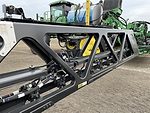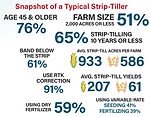Advertise Follow Us
Precision Agriculture 101
What Farmers Want From You
Research Shows Precision Irrigation Technology Improves Corn Productivity
Read MorePrecision Specialist Week
Lessiter Media to Celebrate 1st Annual Precision Specialist Week
Read MoreWhich of Your Customers Were Early Adopters of Precision Technology?
Experts identify a strong history of precision agriculture within no-till farming and predict what technologies no-tillers will seek next.
Read More







![[Technology Corner] Verdant Robotics Sharpshooter Delivers ROI Within 1 Year](https://www.precisionfarmingdealer.com/ext/resources/2024/11/22/Verdant-Robotics-Sharpshooter-Delivers-ROI-Within-1-Year.png?height=290&t=1732293564&width=400)


